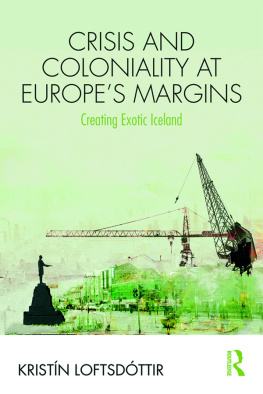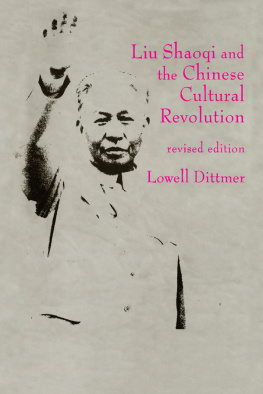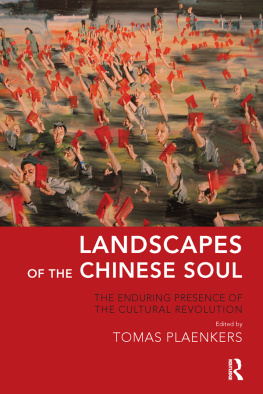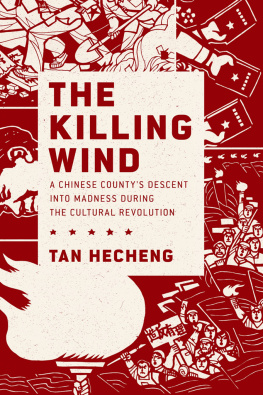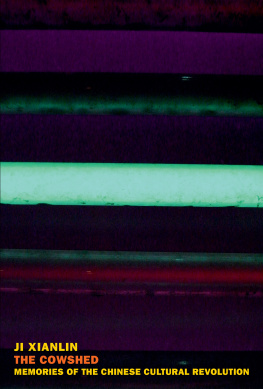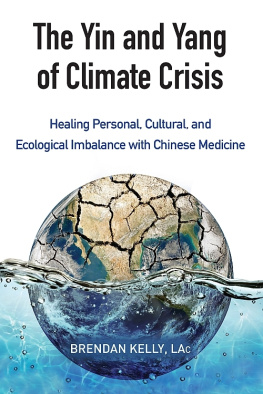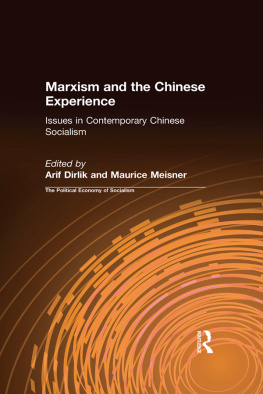Yiching Wu - The Cultural Revolution at the Margins: Chinese Socialism in Crisis
Here you can read online Yiching Wu - The Cultural Revolution at the Margins: Chinese Socialism in Crisis full text of the book (entire story) in english for free. Download pdf and epub, get meaning, cover and reviews about this ebook. year: 2014, publisher: Harvard University Press, genre: History. Description of the work, (preface) as well as reviews are available. Best literature library LitArk.com created for fans of good reading and offers a wide selection of genres:
Romance novel
Science fiction
Adventure
Detective
Science
History
Home and family
Prose
Art
Politics
Computer
Non-fiction
Religion
Business
Children
Humor
Choose a favorite category and find really read worthwhile books. Enjoy immersion in the world of imagination, feel the emotions of the characters or learn something new for yourself, make an fascinating discovery.

- Book:The Cultural Revolution at the Margins: Chinese Socialism in Crisis
- Author:
- Publisher:Harvard University Press
- Genre:
- Year:2014
- Rating:4 / 5
- Favourites:Add to favourites
- Your mark:
- 80
- 1
- 2
- 3
- 4
- 5
The Cultural Revolution at the Margins: Chinese Socialism in Crisis: summary, description and annotation
We offer to read an annotation, description, summary or preface (depends on what the author of the book "The Cultural Revolution at the Margins: Chinese Socialism in Crisis" wrote himself). If you haven't found the necessary information about the book — write in the comments, we will try to find it.
Yiching Wu: author's other books
Who wrote The Cultural Revolution at the Margins: Chinese Socialism in Crisis? Find out the surname, the name of the author of the book and a list of all author's works by series.
The Cultural Revolution at the Margins: Chinese Socialism in Crisis — read online for free the complete book (whole text) full work
Below is the text of the book, divided by pages. System saving the place of the last page read, allows you to conveniently read the book "The Cultural Revolution at the Margins: Chinese Socialism in Crisis" online for free, without having to search again every time where you left off. Put a bookmark, and you can go to the page where you finished reading at any time.
Font size:
Interval:
Bookmark:
THE CULTURAL REVOLUTION AT THE MARGINS
THE CULTURAL REVOLUTION AT THE MARGINS
CHINESE SOCIALISM IN CRISIS
YICHING WU

Harvard University Press
Cambridge, Massachusetts
London, England
2014
Copyright 2014 by the President and Fellows of Harvard College
All rights reserved
Jacket art: Thinkstock
Jacket design: Eric Mulder
The Library of Congress has cataloged the printed edition as follows:
Wu, Yiching.
The cultural revolution at the margins : Chinese socialism in crisis / Yiching Wu.
p. cm.
Includes bibliographical references and index.
ISBN 978-0-674-72879-0 (alk. paper)
1. ChinaHistoryCultural Revolution, 19661976. 2. Hong wei bing. 3. Protest movementsChinaBeijingHistory20th century. 4. Student movementsChinaBeijingHistory20th century. 5. Political violenceChinaBeijingHistory20th century. 6. SocialismChinaHistory20th century. I. Title.
DS778.7.W85 2014
951.05'6dc23 2013042654
This book is dedicated to my parents,
Wu Feng and Xu Guoguang
A total description draws all phenomena around a single centrea principle, a meaning, a spirit, a world-view, and overall shape; a general history, on the contrary, would deploy the space of dispersion.
MICHEL FOUCAULT , The Archaeology of Knowledge
The history of subaltern groups is necessarily fragmented and episodic. There undoubtedly does exist a tendency to (at least provisional stages of) unification in the historical activity of these groups, but this tendency is continually interrupted by the activity of the ruling groups; it therefore can only be demonstrated when a historical cycle is completed and this cycle culminates in a success. Subaltern groups are always subject to the activity of ruling groups, even when they rebel and rise up : only permanent victory breaks their subordination, and that not even immediately.
ANTONIO GRAMSCI , Selections from the Prison Notebooks
CONTENTS
EPILOGUE.
APPENDIX:
AC | Authors collection |
CCP | Chinese Communist Party |
CCRG | Central Cultural Revolution Group |
CCRM | Center for Chinese Research Materials |
CMC | Central Military Committee |
CRDB | Chinese Cultural Revolution Database |
KMT | Kuomingtang |
MZDWG | Jianguo yilai Mao Zedong wengao [Writings of Mao Zedong since the founding of the PRC] |
MZDZ | Mao Zedong zhuan [Biography of Mao Zedong] |
PLA | Peoples Liberation Army |
PRC | Peoples Republic of China |
RMRB | Renmin ribao [Peoples daily] |
SMA | Shanghai Municipal Archives |
SMPC | Shanghai Municipal Party Committee |
WGHQ | Workers General Headquarters |
ZYWXXB | Jianguo yilai zhongyao wenxian xuanbian [Selected important documents since the founding of the PRC] |
The Cultural Revolution was arguably the most profound crisis that socialist China had ever undergone. The spectacle of widespread rebel attacks on the party-state authorities, instigated by the head of that apparatus, was extraordinary. In a letter to his wife, Jiang Qing, dated July 8, 1966, on the eve of the ferocious Red Guard movement, Mao Zedong remarked, I possess both some of the spirit of the tiger and some of the monkey. But it is the tiger spirit which is the dominant, and the monkey spirit secondary. In traditional Chinese cultural symbolism, the monkey or Monkey King was the trickster figure that transgressed boundaries and defied authorities, while the tiger represented reverence for authority and imperial power. Disclosing Maos complex state of mind as he was entering his last great battle, this intriguing statement marked Maos inherently contradictory role as both the chief of Chinas Leninist party-state and the rebel leader, and uncannily foreshadowed the zigzagging and volatile course of the Cultural Revolution, in which eruption and containment, popular radicalization and political recentralization, and rebellion and suppression were closely intertwined.
In this book, I tell the story of the disobedient, recalcitrant little monkeys or Monkey Kings that were unleashed and then herded back into the cage by Mao, the Great Leader. When the Cultural Revolution began in 1966, largely as a revolution from above, Mao had little sense of a clear-cut course of action. Although numerous Red Guards and rebels looked to the Maoist leadership for political guidance, the relationships between the purportedly omnipotent Mao and those who earnestly responded to his call were highly complicated and fragile. With the brief breakdown of the party hierarchy and propaganda apparatus, political messages transmitted from above were interpreted in different ways by different agents. In responding to ambiguous or even contradictory central policies, rebel activists also responded to their own immediate socioeconomic and political circumstances, and many who had long been discontented with Chinas state-socialist institutions burst into the once tightly controlled political arena. Giving expression to a myriad of grievances, the forces unleashed by Mao often took on lives of their own, and some young activists eventually began to question the dominant political order and challenge its fundamental ideological premises. The disorder caused by mass political activism from below and power paralysis at the top created a momentous crisis that the Maoist leadership decided had to be resolutely resolved.
This book is a history of the Cultural Revolution from the perspective of its unruly margins, written with the purpose of better understanding and recuperating a moment of political and ideological possibilities that have been silenced in conventional history and understudied in existing scholarship. Exploring what may be considered a decentered account of the Cultural Revolution, this book attempts to give voices and historical visibility to those otherwise consigned to the peripheries of the movement, where the discontented, disadvantaged, and excluded pressed their demands by creatively exploiting the paralysis of the political order. It explores how ruptural moments developed, political boundaries were reinterpreted and contested, transgressive forces were reworked or partially appropriated, and the dominant system, in neutralizing dissent or absorbing fissures, underwent transformations. With a focus on the rise and fall of the unruly and transgressive currents, this book argues that the more radical political possibilities of the Cultural Revolution were pressed by young grassroots critics and activists who questioned the movements proclivity for attacking individual bureaucrats and putatively bourgeois ideas and customs. Their democratic and antibureaucratic impulses were accompanied by an acute concern with the organization of power in a socialist state. Quashing the restless rebels as early as late 1967, Maoist politics cannibalized its own children and exhausted its once explosive energy. The demobilization of freewheeling mass politics after late 1967 constituted part of the process of restoring the centralized authority of the temporarily disabled party-state and became the starting point of a series of crisis-coping maneuvers that I argue eventually led to the historic changes in the social, economic, and political life in post-Mao China.
Focusing on political and ideological emergence from below, this book is a history of the Cultural Revolution from a bottom-up perspective, as well as a critical inquiry into the historical origins of Chinas postsocialist transformation. The analysis provided in this book allows us to interpret the post-Mao reform as part of a continuous process of political maneuvers to contain, suppress, neutralize, and displace the prevalent crises and transgressions that resulted from the tumultuous Cultural Revolution, when the mass movements unleashed by Mao skidded off course (to borrow a well-known phrase from the historiography of the French Revolution) and threatened to undermine the institutional foundation of the party-state. In contrast to the conventional wisdom that views post-Mao Chinas historic political and economic changes as being in radical opposition to Maos utopian last revolution, I argue that the origins of the momentous changes that have radically transformed contemporary Chinese society since the late 1970s and early 1980s can be traced, at least partly, to the height of the Cultural Revolution in 19671968, when the turn toward demobilization of the mass movement and restoration of party and state organizations became hardly mistakable.
Next pageFont size:
Interval:
Bookmark:
Similar books «The Cultural Revolution at the Margins: Chinese Socialism in Crisis»
Look at similar books to The Cultural Revolution at the Margins: Chinese Socialism in Crisis. We have selected literature similar in name and meaning in the hope of providing readers with more options to find new, interesting, not yet read works.
Discussion, reviews of the book The Cultural Revolution at the Margins: Chinese Socialism in Crisis and just readers' own opinions. Leave your comments, write what you think about the work, its meaning or the main characters. Specify what exactly you liked and what you didn't like, and why you think so.

